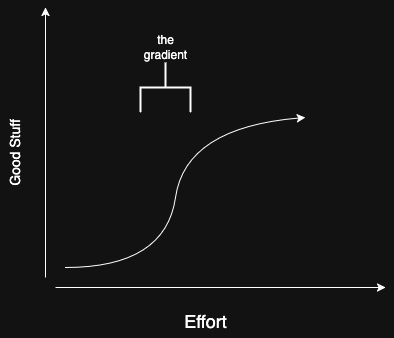How I Use AI

A few people have asked me how I use AI coding tools. I don’t think it’s a straightforward answer. For me it’s not really a procedure or recipe, it’s more of an ethos.
Principle: Ownership
You own the code your AI produces.
Use your own name to commit AI code so that if something breaks, everyone blames you. This is critical. How well do you need to know the code your AI produces? Well enough that you can answer for it’s mistakes.
In lean manufacturing they have the principle of Genchi genbutsu, i.e. “go and see for yourself.” In High Output Management, Andy Grove pushes “management by walking around”. Andy defines the output of a manager as the output of their entire org as well as the organizations under their influence.
The trouble with phrasing it as “AI coding” is it tricks you into thinking it’s just another individual role like software engineering, where it actually has a lot more in common with management. It’s unfortunate we hire and mentor for it as if it was software engineering.
- What does the algorithm actually do?
- Did it find all of the places to refactor?
Resist the urge to say, “oh, I just vibe coded this”. You coded it, and if it sucks, it’s because you don’t know how to manage your AI. Own it.
Principle: Exploit Gradients
Not all time spent is equal. For some things, you can put in a little bit of effort and get a huge amount of reward. In business, we call those opportunities.

Examples:
- Biology: A tiger migrates to where there’s more food. Less effort for more food.
- Arbitrage: Buy cheap, send to another country and sell expensive. Less effort for more money.
AI coding isn’t about writing code, it’s about creating and exploiting gradients. Finding opportunities where you can spend 10 minutes of AI time and reap a huge reward.
The contrived example is proof of concepts. You can just do it, figure out if it really works in practice as it seems like it should, and abandon it quickly when it doesn’t.
Or data analysis. Traditionally it was labor intensive to do data analysis, but you can spin out a sick dashboard in a few minutes. Maybe that helps you avoid a dead end, or push your org in a new direction.
The key is to always be on the lookout for opportunities.
That feels a lot more like a shrewd businessman than a software engineer. Indeed! It’s a mistake that we transparently hire and promote software engineers into these roles. It’s a new beast.
How to become a AI Coder
I’m terrified of the future of software engineering.
Oh, I’ll continue having a job for a very long time. No concern about that. I’m worried that junior engineers won’t be promoted because it’s easier to dispatch a request to an AI than to give juniors the tasks that they traditionally learned the trade from.
But actually, this isn’t software engineering.
If anyone with their head on straight can take ownership and exploit gradients, then maybe junior engineers have an edge on seniors who are too stuck in their ways to realize they’ve been put in a new job role.
Discussion
Get out of your comfort zone
I broadly agree with you, would only add that people do have to get out of their comfort zone to get good at AI, and you have some obligation to do that
It’s really hard to be good at it at first, as a manager you have to give people some slack to learn those new skills too from @rickasourus on Twitter
Yes, managers take note! We’re learning a new job.
Sense of ownership
I enjoyed that. You’re right about the sense of ownership. Although some developers never had a sense of ownership of even hand crafted code. I wrote about this topic recently and it chimes with your thoughts https://www.aidanharding.com/2025/09/coding-with-ai/
The good ones did. @aidanharding.bsky.social says on Bluesky